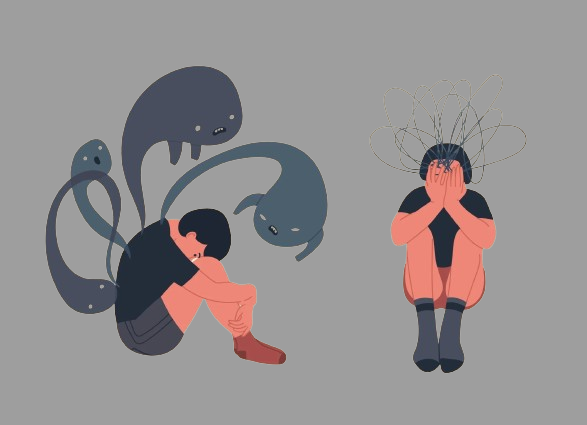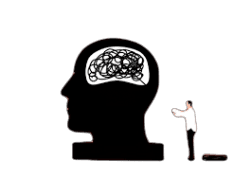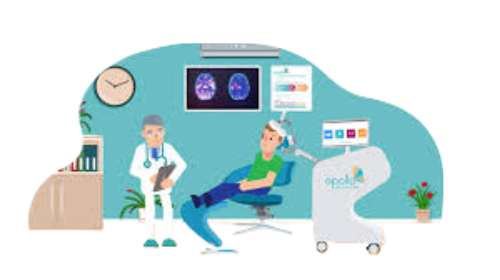Researchers are turning their focus toward mind-altering substances such as psilocybin and LSD for research, using microdosing techniques that require only taking fractions of regular doses to avoid hallucinogenic side effects.
A small study published in 2019 discovered that those who microdose psilocybin reported improved well-being and creativity as well as lower levels of depression and stress than non-microdosers.
What is the use of micro dosing shrooms in psychiatry?
Recently, psychedelics have become an increasingly popular way of treating mental health challenges like anxiety and depression. An increasing number of people are turning to microdosing psychedelics – taking smaller amounts than recommended for full doses in order to achieve similar effects – which they call microdosing. But what exactly is microdosing, and does it really work?
Early research on microdosing has been anecdotal, with enthusiastic survey responses from users reporting improved mood, cognition and stress relief from microdoses of LSD or psilocybin. Lab studies examining low dose psilocybin have also shown benefits – though these studies were small scale and did not compare outcomes against placebos.
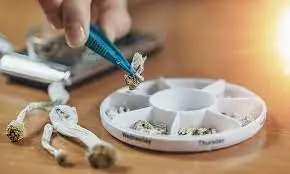
But a new study published in Scientific Reports may have provided new evidence that microdosing works. Researchers examined data from 1133 participants who self-reported on their psychedelic microdoses over two years and discovered that those who used microdoses tended to experience lower DASS scores for depression, anxiety and stress than non-microdosers –
this trend being particularly true for women and those reporting mental health concerns.
The design of this study was significant as it sought to control for two possible causes of people feeling better: expectation and awareness. Dustin Hines, a neuroscientist who studies psychedelics at University of Nevada Las Vegas, suggests that most individuals’ dosing amounts are intended to strike a balance between experiencing drug effects while also maintaining normal cognitive functioning.
What are the benefits of micro dosing shrooms?
Microdosing psilocybin has long been touted for improving mood, creativity and mental concentration. They report improved problem solving abilities too. Yet the research on these claims remains inconclusive.
Some studies found that low doses of psilocybin can make the world appear more vibrant and vivid while altering how people perceive their environment – although these effects don’t last very long and don’t lead to hallucinations or psychotic symptoms.
Others have reported that psychedelics can help alleviate anxiety, depression and other forms of mental illness; however, anecdotal evidence is inconsistent; therefore further rigorous studies must be performed in order to ascertain if these substances offer real medical advantages.
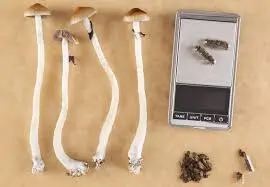
One area of particular interest is stacking, the practice of taking microdoses of psychedelic drugs together with substances to enhance their beneficial effects. This has long been employed across cultures – the Aztecs used chocolate and psilocybin mushrooms together for ritualistic ceremonies called cacahua-xochitl.
One study conducted by researchers demonstrated that older people who microdosed either alone or combined it with lion’s mane mushrooms or niacin showed improvements on finger tapping tests which have been proven accurate predictors for neurodegenerative conditions like Parkinson’s and Multiple Sclerosis.
Mushroom enthusiasts are turning to psilocybin for its purported mental health benefits, but doing so at their own risk – as producing and selling magic mushrooms without a license in Canada is illegal, stores like Mush Luv must operate undercover in order to sell these substances legally.
What are the risks of micro dosing shrooms?
Microdosing psychedelics presents one of the primary risks when microdosing: uncertainty regarding dosage. Since many forms of psychedelics are illegal in many locations and sold on black markets, it can be hard to know exactly what you’re getting; this may result in improper dosing and unpredictable effects.
Furthermore, certain psychedelics such as LSD and psilocybin may produce physiological tolerance over time so in order to get similar effects you may need to increase your dose over time in order to get similar effects.
Other risks include cognitive interference (2.3%, 14 reports) and self-interference (rumination, overanalysis). Other challenges (11%, 108 reports) related to physical discomfort included visual disturbances, temperature dysregulation issues, numbing/tingling sensations and insomnia.
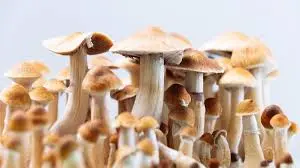
Although lacking rigorous scientific research, some people are employing microdoses of hallucinogen psilocybin to help treat mental health conditions. A recent study discovered that participants taking low doses were more creative and happier than those not taking any. Researchers even noticed changes in brain waves using an EEG machine.
Other research, however, hasn’t been as promising. A trial involving Amazonian plant mixture Ayahuasca showed it may help treat depression and alcohol use disorder when taken under clinically controlled settings – though its anecdotal evidence alone should not be taken without medical supervision.
What is the usage of micro dosing shrooms?
Canadians increasingly turn to psilocybin (commonly referred to as magic mushrooms) to treat mental health concerns, yet scientific proof remains limited. CBC’s Nick Purdon hears from both those microdosing as well as researchers working to find out whether psilocybin actually helps.
Over the past several years, many individuals have used low doses of psychedelics to enhance their mental well-being without experiencing hallucinogenic side effects associated with larger doses. This practice is known as microdosing; the theory being that mushrooms contain chemicals similar to psilocybin that may alter one’s perceptions, beliefs and attitudes.
Changes like these can make you happier and more creative while increasing focus and productivity, according to research conducted in double-blind placebo-controlled studies where participants received 0.5 grams of dried psilocybin mushrooms; those who took it reported feeling more creative and happy; EEG readings indicated certain brain wave changes.
However, some scientists remain wary about the quality of this research. It can be hard to accurately ascertain exactly how much psilocybin was consumed; microdose effects in real world situations are even harder to gauge; furthermore there is always the chance that people may develop physiological tolerance to it, meaning more and more will need to be consumed to get the same effect.

